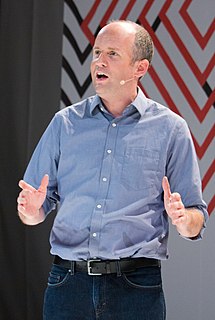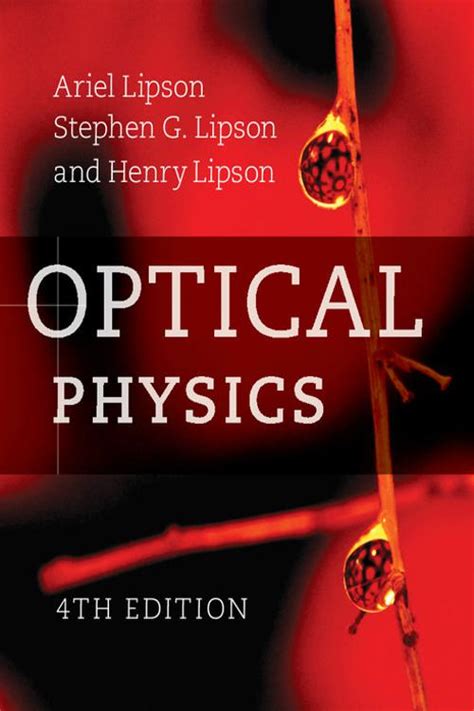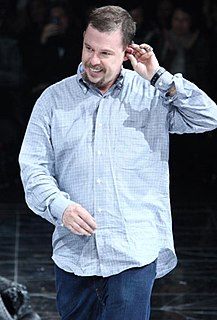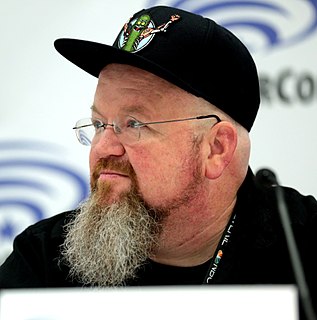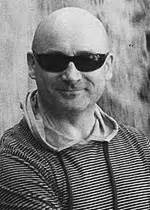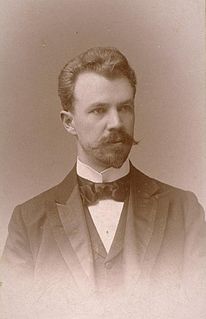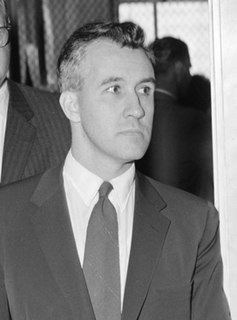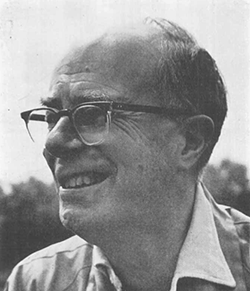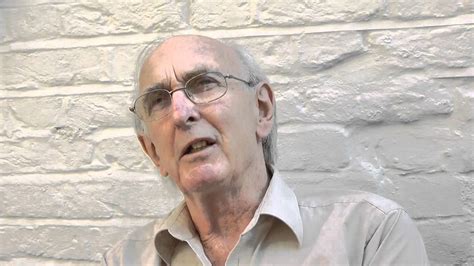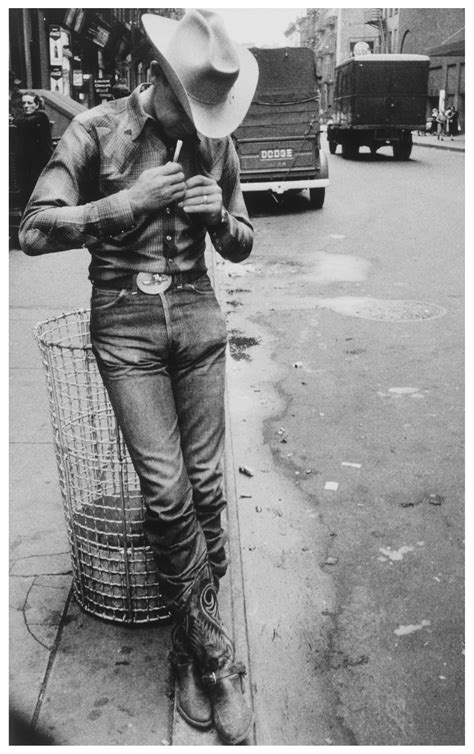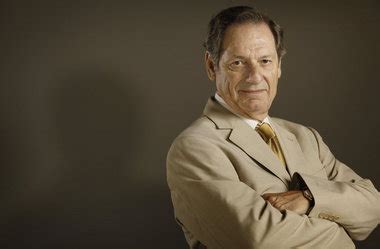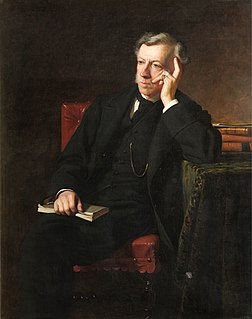Top 348 Darwin Quotes & Sayings - Page 6
Explore popular Darwin quotes.
Last updated on November 20, 2024.
You must not say that this cannot be, or that that is contrary to nature. You do not know what Nature is, or what she can do; and nobody knows; not even Sir Roderick Murchison, or Professor Huxley, or Mr. Darwin, or Professor Faraday, or Mr. Grove, or any other of the great men whom good boys are taught to respect. They are very wise men; and you must listen respectfully to all they say: but even if they should say, which I am sure they never would, 'That cannot exist. That is contrary to nature,' you must wait a little, and see; for perhaps even they may be wrong.
The routines of almost all famous writers, from Charles Darwin to John Grisham, similarly emphasise specific starting times, or number of hours worked, or words written. Such rituals provide a structure to work in, whether or not the feeling of motivation or inspiration happens to be present. They let people work alongside negative or positive emotions, instead of getting distracted by the effort of cultivating only positive ones. ‘Inspiration is for amateurs,’ the artist Chuck Close once memorably observed. ‘The rest of us just show up and get to work.
Darwin's book, On the Origin of Species, was published in 1859. It is perhaps the most influential book that has ever been published, because it was read by scientist and non- scientist alike, and it aroused violent controversy. Religious people disliked it because it appeared to dispense with God; scientists liked it because it seemed to solve the most important problem in the universe-the existence of living matter. In fact, evolution became in a sense a scientific religion; almost all scientists have accepted it and many are prepared to 'bend' their observations to fit in with it.
Science is a capital or fund perpetually reinvested; it accumulates, rolls up, is carried forward by every new man. Every man of science has all the science before him to go upon, to set himself up in business with. What an enormous sum Darwin availed himself of and reinvested! Not so in literature; to every poet, to every artist, it is still the first day of creation, so far as the essentials of his task are concerned. Literature is not so much a fund to be reinvested as it is a crop to be ever new-grown.
When Charles Darwin wrote The Origin Of The Species, no one could have known that the ice cap would melt, that the waters would rise and that life on earth would have to evolve in order to live beneath the sea once more or perish. We came from water and now, with the help of stem cell technology and cloning, we must go back to it to survive.When the waters rise, humanity will go back to the place from whence it came.Make no mistake, this is not sci-fi, this is evolution
For centuries the most powerful argument for God's existence from the physical world was the so-called argument from design: Living things are so beautiful and elegant and so apparently purposeful, they could only have been made by an intelligent designer. But [Charles] Darwin provided a simpler explanation. His way is a gradual, incremental improvement starting from very simple beginnings and working up step by tiny incremental step to more complexity, more elegance, more adaptive perfection.
Let me lay my cards on the table. If I were to give an award for the single best idea anyone ever had, I'd give it to Darwin, ahead of even Newton or Einstein and everyone else. In a single stroke, the idea of evolution by natural selection unifies the realm of life, meaning, and purpose with the realm of space and time, cause and effect, mechanism and physical law. It is not just a wonderful idea. It is a dangerous idea.
Here is how you know someone has had a good idea: Other people freely admit to their friends that said idea has changed their lives. Most people today will grant that fire and the wheel are the big two. After that, any attempts to rank the greatest ideas of all time are going to draw lots of argument. You’ll have zealots pimping this god or that on the one hand, scientists pimping Darwin on the other, and then practical people pointing at written language and saying, look, fellas, the reason those ideas have gone viral is because someone figured out how to write them down.
There is behavioral ecology, which looks closely at the difference different ecologies make to behavior and other features of animals and humans. There's evolutionary individual psychology, there's evolutionary social psychology. In Darwin's terms, evolution couldn't exist without variation, and variation is important in behavioral genetics. And so on, and so on. There are so many instances in which evolution actually sharpens the precision, I think, with which one can find out the importance of differences. We're interested in differences as well as commonalities.
The question is: exactly how did life get here? Was it by natural selection and random mutation or was it by something else? Everybody - even Richard Dawkins - sees design in biology. You see this design when you see co-ordinated parts coming together to perform a function - like in a hand. And so it's the appearance of design that everybody's trying to explain. So that if Darwin's theory doesn't explain it we're left with no other explanation than maybe it really was designed. That's essentially the design argument.
[Coleridge] selected an instance of what was called the sublime, in DARWIN, who imagined the creation of the universe to have taken place in a moment, by the explosion of a mass of matter in the womb, or centre of space. In one and the same instant of time, suns and planets shot into systems in every direction, and filled and spangled the illimitable void! He asserted this to be an intolerable degradation -referring, as it were, all the beauty and harmony of nature to something like the bursting of a barrel of gunpowder! that spit its combustible materials into a pock-freckled creation!
An intelligent couple can read their Darwin and know that the ultimate reason for their sexual urges is procreation. They know that the woman cannot conceive because she is on the pill. Yet they find that their sexual desire is in no way diminished by the knowledge. Sexual desire is sexual desire and its force, in an individual's psychology, is independent of the ultimate Darwinian pressure that drove it. It is a strong urge which exists independently of its ultimate rationale.
How did scientists get money in the past? They were either lucky and independently wealthy, like Darwin, or they had patrons, like Galileo. Universities or governments have become patrons only in the last few generations. Many of the great scientists of the past were in debt to their patrons in the same sense that modern scientists are influenced by what their granting agencies want.
The result of [the] cumulative efforts to investigate the cell - to investigate life at the molecular level - is a loud, clear, piercing cry of 'design!' The result is so unambiguous and so significant that it must be ranked as one of the greatest achievements in the history of science. The discovery rivals those of Newton and Einstein, Lavoisier and Schrödinger, Pasteur, and Darwin. The observation of the intelligent design of life is as momentous as the observation that the earth goes around the sun.
The first objection to Darwinism is that it is only a guess and was never anything more. It is called a "hypothesis," but the word "hypothesis," though euphonious, dignified and high-sounding, is merely a scientific synonym for the old-fashioned word "guess." If Darwin had advanced his views as a guess they would not have survived for a year, but they have floated for half a century, buoyed up by the inflated word "hypothesis." When it is understood that "hypothesis" means "guess," people will inspect it more carefully before accepting it.
Creationists reject Darwin's theory of evolution on the grounds that it is "just a theory". This is a valid criticism: evolution is indeed merely "a theory", albeit one with ten billion times more credence than the theory of creationism - although, to be fair, the theory of creationism is more than just a theory. It's also a fairy story. And children love fairy stories, which is presumably why so many creationists are keen to have their whimsical gibberish taught in schools.
I am Plato's Republic. Mr. Simmons is Marcus. I want you to meet Jonathan Swift, the author of that evil political book, Gulliver's Travels! And this other fellow is Charles Darwin, and-this one is Schopenhauer, and this one is Einstein, and this one here at my elbow is Mr. Albert Schweitzer, a very kind philosopher indeed. Here we all are, Montag. Aristophanes and Mahatma Gandhi and Gautama Buddha and Confucius and Thomas Love Peacock and Thomas Jefferson and Mr. Lincoln, if you please. We are also Matthew, Mark, Luke, and John.
There was an idea that God created man different from other animals, because man was rational and animals had drives and instincts. That idea of a rational man that was specially created went out the window when Darwin showed that we evolved from animal ancestors, that we have instincts, much as do animals, and that our instincts are very important. It was a much more sophisticated, nuanced, and rich view of the human mind.
[Elephants] are less agile and physically less adaptable than ourselves - Nature having developed their bodies in one direction and their brains in another, while human beings, on the other hand, drew from Mr. Darwin's lottery of evolution both the winning ticket and the stub to match it. This, I suppose, is why we are so wonderful and can make movies and electric razors and wireless sets - and guns with which to shoot the elephant, the hare, clay pigeons, and each other.
In his anti-Darwinian book... (and eponymously named The Neck of the Giraffe ), Francis Hitching tells the story... "The need to survive by reaching ever higher for food is, like so many Darwinian explanations of its kind, little more than a post hoc speculation." Hitching is quite correct, but he rebuts a fairy story that Darwin was far too smart to tell - even though the tale later entered our high school texts as a "classic case" nonetheless.
For more than a year, he'd felt destined to marry Isabel Arundell; now, suddenly, he wasn't so sure. He loved her, that was certain, but he also resented her. He loved her strength and practicality but resented her overbearing personality and tendency to do things on his behalf without consulting him first; loved that she tolerated his interest in all things exotic and erotic but hated her blinkered Catholicism. Charles Darwin had killed God but she and her family, like so many others, still clung to the delusion.
Questions like, "Is my suit OK?", or "Is my job performance satisfactory?", are impossible to think about in the absence of a suitable frame of reference. For an interview suit to serve its purpose, it must make you look good relative to other candidates for the job you want. For your job performance to be satisfactory, it must compare favorably with the performance of others who want the same promotion you do. As Charles Darwin saw clearly, much of life is graded on the curve, and conventional economic models completely ignore that fact.
With the eventual acceptance of Darwin's theory we reach a modern understanding of nature, one which has since then changed in detail rather than in fundamentals. Only those who prefer religious faith to beliefs based on reasoning and evidence can still maintain that the human species is the special darling of the entire universe, or that other animals were created to provide us with food, or that we have divine authority over them, and divine permission to kill them.
I like to summarize what I regard as the pedestal-smashing messages of Darwin's revolution in the following statement, which might be chanted several times a day, like a Hare Krishna mantra, to encourage penetration into the soul: Humans are not the end result of predictable evolutionary progress, but rather a fortuitous cosmic afterthought, a tiny little twig on the enormously arborescent bush of life, which, if replanted from seed, would almost surely not grow this twig again, or perhaps any twig with any property that we would care to call consciousness.
If Darwin could see what we now see, what we now know about the ocean, about the atmosphere, about the nature of life, as we now understand it, about the importance of microbes - I think he would just beam with joy that many of the thoughts and the glimpses of the majesty of life on Earth that he had during his life, now magnified many times over.
My general impression about people like Steve Gould and Carl Sagan and so on is that when they disappear as individuals and are no longer appearing on the stage and they are no longer writing, that their lifetime of acknowledgement by the general reading public is not very long... There were many people in the 19th century who were equally famous people who gave working man's lectures, supporters of Darwin, we as scholars know their names but the general public never heard of them.
Nothing is done. Everything in the world remains to be done or done over. The greatest picture is not yet painted, the greatest play isn't written, the greatest poem is unsung. There isn't in all the world a perfect railroad, nor a good government, nor a sound law. Physics, mathematics, and especially the most advanced and exact of the sciences are being fundamentally revised. . . Psychology, economics, and sociology are awaiting a Darwin, whose work in turn is awaiting an Einstein.
Evolution is the fundamental idea in all of life science, in all of biology. The key to our being here now is time, 4.54 billion (Earth) years of time. Nuclear fission wasn't discovered until long after Charles Darwin and Alfred Russell Wallace published their original books and papers, for example. Our ability to measure atomic masses wasn't developed until long after their deaths. These features of nature enabled us to reckon the age of the Earth and compare it with speciation rates here.
Darwin, Marx, and Freud meet. They may have understood other things, but the human soul, and in particular the soul of Culture-man, they did not understand. Systems like theirs are only historical curiosities to the 20th century, unless they happen to claim to be appropriate descriptions of Reality. Anyone who believes in these antiquated fantasies stamps himself as ludicrous, posthumous, ineffective, and superfluous. No leading men of the coming decades will be Darwinians, Marxians or Freudians.
The growth of our knowledge is the result of a process closely resembling what Darwin called 'natural selection'; that is, the natural selection of hypotheses: our knowledge consists, at every moment, of those hypotheses which have shown their (comparative) fitness by surviving so far in their struggle for existence, a competitive struggle which eliminates those hypotheses which are unfit.
...where were answers to the truly deep questions? Religion promised those, though always in vague terms, while retreating from one line in the sand to the next. Don't look past this boundary, they told Galileo, then Hutton, Darwin, Von Neumann, and Crick, always retreating with great dignity before the latest scientific advance, then drawing the next holy perimeter at the shadowy rim of knowledge.
Darwin's principle of natural selection leads to the prediction that the proper way to analyze any evolutionary development is to see the new features as adaptive to environments. And that's a perfectly good principle. The problem is that there are many evolutionary biologists who view everything that happens in evolution as directly evolved for adaptive benefit. And that just doesn't work. Whenever you build a structure for adaptive reasons, the structure is going to exhibit properties that have nothing to do with adaptation. They're just side consequences.
Paleontologists had long been aware of a seeming contradiction between Darwin's postulate of gradualism, confirmed by the work of population genetics, and the actual findings of paleontology. Following phyletic lines through time seemed to reveal only minimal gradual changes but no clear evidence for any change of a species into a different genus or for the gradual origin of an evolutionary novelty. Anything truly novel always seemed to appear quite abruptly in the fossil record.
Science is being daily more and more personified and anthromorphized into a god. By and by they will say that science took our nature upon him, and sent down his only begotten son, Charles Darwin, or Huxley, into the world so that those who believe in him, &c.; and they will burn people for saying that science, after all, is only an expression for our ignorance of our own ignorance.
After Darwin, God's role changes from being the designer of all creatures great and small to being the designer of the laws of nature, from which natural selection can unfold, to being perhaps just the chooser of the laws. By the time God's role has been so diminished, he becomes a bit like a constitutional monarch, presiding ceremonially but not having any more work to do. That's a place for God if it makes people comfortable to keep God as the presider over the universe. I suppose that is satisfying for many.
On consideration, it is not surprising that Darwin's finches should recognize their own kind primarily by beak characters. The beak is the only prominent specific distinction, and it features conspicuously both in attacking behaviour, when the birds face each other and grip beaks, and also in courtship, when food is passed from the beak of the male to the beak of the female. Hence though the beak differences are primarily correlated with differences in food, secondarily they serve as specific recognition marks, and the birds have evolved behaviour patterns to this end.
We debase the richness of both nature and our own minds if we view the great pageant of our intellectual history as a compendium of new information leading from primal superstition to final exactitude. We know that the sun is hub of our little corner of the universe, and that ties of genealogy connect all living things on our planet, because these theories assemble and explain so much otherwise disparate and unrelated information not because Galileo trained his telescope on the moons of Jupiter or because Darwin took a ride on a Galápagos tortoise.
As a young boy, Charles Darwin made friends easily but preferred to spend his time taking long, solitary nature walks. (As an adult he was no different. “My dear Mr. Babbage,” he wrote to the famous mathematician who had invited him to a dinner party, “I am very much obliged to you for sending me cards for your parties, but I am afraid of accepting them, for I should meet some people there, to whom I have sworn by all the saints in Heaven, I never go out.”)
A large number of well-trained scientists outside of evolutionary biology and paleontology have unfortunately gotten the idea that the fossil record is far more Darwinian than it is. This probably comes from the oversimplification inevitable in secondary sources: low-level textbooks semipopular articles, and so on. Also, there is probably some wishful thinking involved. In the years after Darwin, his advocates hoped to find predictable progressions. In general. these have not been found-yet the optimism has died hard and some pure fantasy has crept into textbooks.
Natural Selection is not Evolution. Yet, ever since the two words have been in common use, the theory of Natural Selection has been employed as a convenient abbreviation for the theory of Evolution by means of Natural Selection, put forward by Darwin and Wallace. This has had the unfortunate consequence that the theory of Natural Selection itself has scarcely ever, if ever, received separate consideration.
The entire hominid collection known today would barely cover a billiard table, ... the collection is so tantalizingly incomplete, and the specimens themselves often so fragmented and inconclusive, that more can be said about what is missing than about what is present. ...but ever since Darwin's work inspired the notion that fossils linking modern man and extinct ancestor would provide the most convincing proof of human evolution, preconceptions have led evidence by the nose in the study of fossil man.
For books [Charles Darwin] had no respect, but merely considered them as tools to be worked with. ... he would cut a heavy book in half, to make it more convenient to hold. He used to boast that he had made Lyell publish the second edition of one of his books in two volumes, instead of in one, by telling him how ho had been obliged to cut it in half. ... his library was not ornamental, but was striking from being so evidently a working collection of books.
As the great naturalist Charles Darwin saw clearly, individual and collective interests often coincide, as in the invisible hand narrative. But he also saw that in many other cases, interests at the two levels are squarely in conflict, and that in those cases, individual interests generally trump. That simple observation suggests that market failure is often the result not of insufficient competition (the traditional charge from social critics on the Left), but of the very logic of competition itself.
In 1867, George Campbell, Duke of Argyll, had published The Reign of Law, a book that Darwin found deeply annoying. A supporter of Richard Owen, Campbell argued that while evolution (or Development) might be observable in the fossil record, it was merely evidence of God's purpose. God, for example, would cause horses and oxen to evolve in time to meet human needs. The brightly colored plumage of birds, Campbell went on, were simply God's decorations of nature for humanity's enjoyment.
A wonderful, warm, positive individual who exhibits the values that are prerequisite to a significant faculty post in higher education, I think that it is an absolutely extraordinary and bold career move that Darwin has made in leaving the Orchestra and embarking on the trajectory of a solo performer/educator. And what a marvelous thing it is for Detroit to be able to welcome home a successful native son - one in whom the community can take pride, and one who will serve as an inspiration to a younger generation of aspiring performers eager to make their mark in the world.
This does not mean that the profession is about to abandon Darwin forever or indorse [sic] my views publicly. The situation remains much as it was: the inner circles are full of doubt, but the public utterances are confident. The doubts may be greater now and the confidence less serene, but it will be a long time before the public is given the full dark picture. There is still need for a dissenting voice, a devil's advocate, a skeptical whistle-blower.
Since in every European country between 1870 and 1914 there was a war party demanding armaments, an individualist party demanding ruthless competition, an imperialist party demanding a free hand over backward peoples, a socialist party demanding the conquest of power and a racialist party demanding internal purges against aliens - all of them, when appeals to greed and glory failed, invoked Spencer and Darwin, which was to say science incarnate.

